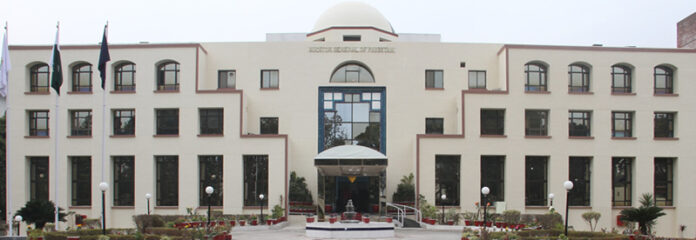ISLAMABAD: As the incumbent Auditor General of Pakistan (AGP) is set to retire, different names have emerged for the position of the new, one of the most prestigious positions in the federal government.
According to sources, the AGP office has reportedly forwarded the names of Pakistan Atomic Energy Commission (PAEC) Member Finance Ajmal Gondal, National Food Security and Research Secretary Ghufran Memon, Controller General Accounts Farrukh Ahmad Hamidi and Additional Auditor General-1 Ghulam Muhammad Memon.
Besides these names, the AGP office has also reportedly forwarded the name of former Economic Affairs Division (EAD) Secretary Syed Ghazanfar Abbas Jilani for the AGP slot.
Sources said that all the proposed officers belong to grade 22 of Pakistan Audit and Account Service (PAAS), however, the AGP office has selected a retired officer despite the fact that a number of retired officials of BS-22 are still under the age of 65.
It is pertinent to note that former EAD secretary Jilani, who is also a cousin of a former prime minister, by accepting his promotion as BS-22 officer in Secretariat Service, was no longer in the PAAS.
The incumbent AGP Javed Jahangir will complete his tenure on August 16. Jahangir was appointed by former prime minister Shahid Khaqan Abbasi in the last days of the PML-N government.
As per rules, the government can appoint any officer as AGP, serving or retired, who is less than 65 years of age for a maximum tenure of four years, whichever is earlier.
According to sources, the constitutional position demands that the officer in this position, whether in service or retired, should not have any political affiliations.
Sadly, however, each time this slot is to be filled, political clout dominates and professional career officers are ignored such as during PML-N appointing Javed Jahangir.




